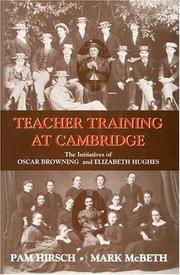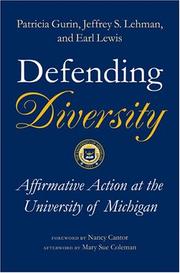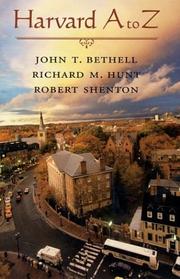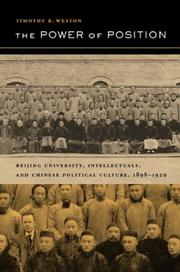| Listing 1 - 5 of 5 |
Sort by
|

ISBN: 1135783047 0713002344 1280046112 0203642686 9780203642689 9786610046119 6610046115 9780713002348 9780713040548 0713040548 0713040548 9781135783044 9781135782993 1135782997 9781135783037 1135783039 9781280046117 Year: 2004 Publisher: London ; Portland, OR : Woburn Press,
Abstract | Keywords | Export | Availability | Bookmark
 Loading...
Loading...Choose an application
- Reference Manager
- EndNote
- RefWorks (Direct export to RefWorks)
This book focuses on two educationalists, Oscar Browning (1837-1923) and Elizabeth Hughes (1852-1925) who were the principals of the two separate day training colleges for men and women at Cambridge. The early initiatives of these two leaders began the development of education studies at Cambridge University and, therefore, serve as test cases to examine the relationship between teacher training and the university. As their early programmes foreshadowed the work of the present-day Faculty of Education, a historical review of these Victorian educational experiments uncovers how the unstable rel.
Educators --- Teachers --- Faculty (Education) --- Instructors --- School teachers --- Schoolteachers --- School employees --- Educationalists --- Educationists --- Specialists --- Training of --- History --- Browning, Oscar, --- Hughes, Elizabeth, --- University of Cambridge --- Academia Cantabrigiensis --- Cambridge. --- Cambridge University --- Chien-chʻiao ta hsüeh --- Jianqiao da xue --- Kambrija Yeke Surġaġuli --- Kembridzhiĭn Ikh Surguulʹ --- Universität Cambridge --- Ying-kuo Chien-chʻiao ta hsüeh --- Кембриджийн Их Сургууль --- 剑桥大学 --- Chancellor, Masters, and Scholars of the University of Cambridge --- Cambridge. University

ISBN: 1282940279 9786612940279 0472026496 9780472026494 0472113070 9781282940277 6612940271 9780472113071 Year: 2004 Publisher: Ann Arbor : University of Michigan Press,
Abstract | Keywords | Export | Availability | Bookmark
 Loading...
Loading...Choose an application
- Reference Manager
- EndNote
- RefWorks (Direct export to RefWorks)
The first major book to argue in favor of affirmative action in higher education since Bowen and Bok's The Shape of the River.
Universities and colleges --- Minority college students --- Affirmative action programs --- Colleges --- Degree-granting institutions --- Higher education institutions --- Higher education providers --- Institutions of higher education --- Postsecondary institutions --- Public institutions --- Schools --- Education, Higher --- College students --- Minority students --- Admission. --- Recruiting --- Admission --- Law and legislation --- University of Michigan --- University of Michigan at Ann Arbor --- Michigan. University --- Ann Arbor (Mich.). University of Michigan --- Detroit (Mich.). University of Michigan --- Mi-hsi-kên ta hsüeh --- Université du Michigan

ISBN: 0674020898 9780674020894 0674012887 9780674012882 Year: 2004 Publisher: Cambridge, MA : Harvard University Press,
Abstract | Keywords | Export | Availability | Bookmark
 Loading...
Loading...Choose an application
- Reference Manager
- EndNote
- RefWorks (Direct export to RefWorks)
'Harvard A to Z' is a browser's delight, offering readers the chance to dip into the history and lore, the character and culture of America's foremost institution of higher learning.
Harvard University --- Garvardskiĭ universitet --- Ha-fo ta hsüeh --- Hafo da xue --- President and Fellows of Harvard College --- Harvard Üniversitesi --- Universidad de Harvard --- Dānishgāh-i Hārvārd --- University in Cambridge (Cambridge, Mass.) --- Гарвардский университет --- 哈佛大學 --- 哈佛大学 --- Harvard College (1636-1780) --- 378.4 <73 CAMBRIDGE> --- 378.4 <73 CAMBRIDGE> Universiteiten--Verenigde Staten van Amerika. VSA. USA--CAMBRIDGE --- Universiteiten--Verenigde Staten van Amerika. VSA. USA--CAMBRIDGE --- EDUCATION / History.
Book
ISBN: 0231501145 9780231501149 Year: 2004 Publisher: New York, NY
Abstract | Keywords | Export | Availability | Bookmark
 Loading...
Loading...Choose an application
- Reference Manager
- EndNote
- RefWorks (Direct export to RefWorks)
This remarkable story begins in the years following the Civil War, when reformers-emboldened by the egalitarian rhetoric of the post-Civil War era-pressed New York City's oldest institution of higher learning to admit women in the 1870's. Their effort failed, but within twenty years Barnard College was founded, creating a refuge for women scholars at Columbia, as well as an academic beachhead "from which women would make incursions into the larger university." By 1950, Columbia was granting more advanced degrees to women and hiring more female faculty than any other university in the country. In Changing the Subject, Rosalind Rosenberg shows how this century-long struggle transcended its local origins and contributed to the rise of modern feminism, furthered the cause of political reform, and enlivened the intellectual life of America's most cosmopolitan city. Surmounting a series of social and institutional obstacles to gain access to Columbia University, women played a key role in its evolution from a small, Protestant, male-dominated school into a renowned research university. At the same time, their struggles challenged prevailing ideas about masculinity, femininity, and sexual identity; questioned accepted views about ethnicity, race, and rights; and thereby laid the foundation for what we now know as gender. From Lillie Devereux Blake, Annie Nathan Meyer, and Virginia Crocheron Gildersleeve in the first generation, through Ruth Benedict, Margaret Mead, and Zora Neale Hurston in the second, to Kate Millett, Gerda Lerner, and Ruth Bader Ginsburg in the third, the women of Columbia shook the world.
Feminism and higher education --- Women in higher education --- Coeducation --- Féminisme et enseignement supérieur --- Femmes dans l'enseignement supérieur --- Coéducation --- EDUCATION --- HISTORY --- Education --- Single-sex classes (Education) --- Single-sex schools --- Education, Higher --- Higher education and feminism --- History --- Histoire --- Higher. --- State & Local --- New England (CT, MA, ME, NH, RI, VT) --- Columbia University --- Ko-lun-pi-ya ta hsüeh --- Kolumbiĭskiĭ universitet --- Panepistēmion Columbia --- Université de Columbia --- Columbia University in the City of New York --- Gelunbiya da xue --- 哥伦比亚大学 --- Columbia College (New York, N.Y.) --- Columbia-Presbyterian Medical Center --- Admission

ISBN: 9786612357077 1282357077 052092990X 1597348287 9780520929906 1417525673 9781417525676 9781597348287 661235707X 0520237676 9780520237674 9781282357075 Year: 2004 Publisher: Berkeley : University of California Press,
Abstract | Keywords | Export | Availability | Bookmark
 Loading...
Loading...Choose an application
- Reference Manager
- EndNote
- RefWorks (Direct export to RefWorks)
Throughout the twentieth century, Beijing University (or Beida) has been at the center of China's greatest political and cultural upheavals-from the May Fourth Movement of 1919 to the Cultural Revolution of the 1960's to the tragic events in Tiananmen Square in 1989. Why this should be-how Beida's historical importance has come to transcend that of a mere institution of higher learning--is a question at the heart of this book. A study of intellectuals and political culture during the past century's tumultuous early decades, The Power of Position is the first to focus on Beida, China's oldest and best-known national university. Timothy B. Weston portrays the university as a key locus used by intellectuals to increase their influence in society. Weston analyzes the links between intellectuals' political and cultural commitments and their specific manner of living. He also compares Beijing's intellectual culture with that of the rising metropolis of Shanghai. What emerges is a remarkably nuanced and complex picture of life at China's leading university, especially in the decades leading up to the May Fourth Movement.
Political culture --- Higher education and state --- Education, Higher --- State and higher education --- Education and state --- History. --- Government policy --- Beijing da xue --- Jing shi da xue tang (Beijing, China) --- Pei-ching ta hsüeh --- National University of Peking --- Metropolitan University (Beijing, China) --- Universität Peking --- Beijing (China). --- Guo li Beijing da xue --- Bei jing da xue --- Peking University --- Université de Pékin --- Beijing University --- Kokuritsu Pekin Daigaku --- Pei ta (China) --- Universität Beijing --- Pekinger Reichsuniversitaet --- Pukkyŏng Taehak --- Begejing Yeke Surġaġuli --- Universitas Peking --- 北京大〓 --- 北京大学 --- 北京大學 --- 國立北京大學 --- S02/0210 --- S11/0708 --- S11/0709 --- S14/0200 --- S14/0400 --- History --- China: General works--Intellectuals: general and before 1840 --- China: Social sciences--Elite --- China: Social sciences--Cadres (incl. political commissars) --- China: Education--General works --- China: Education--Modern education: before 1949 (incl. Modern intellectual trends) --- academia. --- beida. --- beijing university. --- beijing. --- china. --- chinese anarchism. --- chinese culture. --- chinese history. --- chinese intellectuals. --- chinese republic. --- chinese students. --- citizenship. --- college campus. --- college. --- cultural revolution. --- democracy. --- free speech. --- higher education. --- history. --- intellectual culture. --- may fourth movement. --- national university. --- nonfiction. --- peoples republic. --- politics. --- protest. --- rebellion. --- resistance. --- shanghai. --- social change. --- social influence. --- social standing. --- student protest. --- student. --- tiananmen square. --- university.
| Listing 1 - 5 of 5 |
Sort by
|

 Search
Search Feedback
Feedback About UniCat
About UniCat  Help
Help News
News